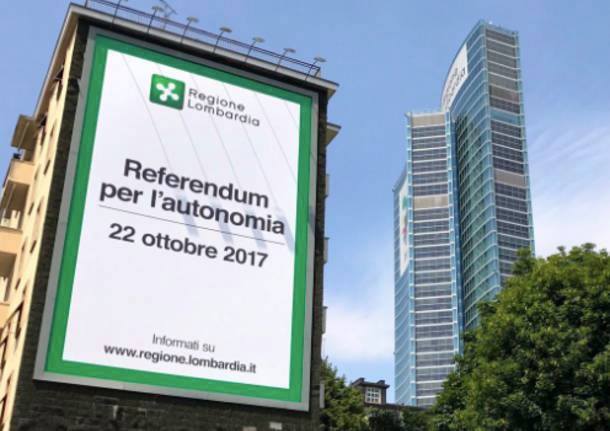Catalonian ripples
Northern Italy’s vote for autonomy

Photo: BS News
The Catalonian referendum has re-opened the debate on the right to self-determination and on regionalism all around Europe. Bavaria, Flanders and Veneto are often mentioned as similar to the Catalonian situation. Italy is not an exception either, Lombardy and Veneto are asking in for more autonomy with a non-binding referendum on Sunday. The constitution allows for this kind of dialogue to happen and, on top of the already existing five regions with special autonomy, Emilia-Romagna reached a deal with the government to starts a path towards more autonomy for them too. This case is interesting because it happened without the need for a popular vote and the political charge poured into the northern ones.
Both Lombardy and Veneto are, in fact, governed by the Northern League. The party distinguishes itself by its Eurosceptic position that lead to rise in popularity bringing them to be the biggest right wing party in the country. A part of the success was due to the election of the current leader Matteo Salvini and his “Italianization” of the party. Under his leadership, the party expanded its influence to the whole peninsula by using a more inclusive national rhetoric and shifting the attention on the immigration crisis and on Brussels’ faults. This shift has proven successful and recent poll put the Northern League at almost 15%, three percentage points above Silvio Berlusconi’s Forza Italia.
This move has left the old party base bitter with the dream of full independence of the North getting further away from them. The schism was made evident during the last gathering at Pontida, a small town that hosts the annual rally of the party, during which the founder Umberto Bossi didn’t get his chance to speak to the crowd for the first time in 27 years. For this reason, Salvini hasn’t been too active in campaigning for the referendum that will be held on Sunday the 22nd in the two major regions governed by his party. For him these consultations are detrimental anyway since in case of a strong turnout it would galvanize the old base, while the contrary would spell defeat for the whole party and, therefore, of Salvini.
On top of this, the referendum has lighted the flames of the unionist parties in the right wing coalition. Giorgia Meloni, head of Fratelli d’Italia, has called the Referendums an attach to the country and has led to an internal feud that has yet to be resolved. This discourse is fueled by the current situation in Catalonia and could very well compromise the parties ambition as the leader of the coalition. At the moment they have a small margin on Forza Italia, but come spring and the election season, the result of the referendum and a possible debate on autonomy could hinder Salvini’s national scope.
To worry the party even more, is a recent poll by SWG which asked the northern citizen if the believed it was “right” to have called a vote. The results were ambivalent, especially in Lombardy where the positive answer only reached 51% of the total. Even worst was the results of the following questions. When asked if the vote was “useful”, 45% in Veneto and 41% in Lombardy said yes. When asked about the budget of the referendum or if it wouldn’t have been better to follow the Emilia-Romagna way of a direct dialogue with Rome, the people believed it was both a waste of money and a worst way to go about more autonomy.
The situation will further complicate on Saturday the 21st, when Madrid is suppose to trigger Article 155 and take control of the Catalan government. The repercussion of that decision will be felt immediately since the vote is the day after that and, depending on the evolution of the situation, it could affect the results of the two consultations. Admittedly the Italian situation is far from being similar to the Spanish one, nevertheless it’s easy to draw comparisons between the two. In the almost three decades long history of the party, this might have been the worst possible moment to call for the Referendums.
